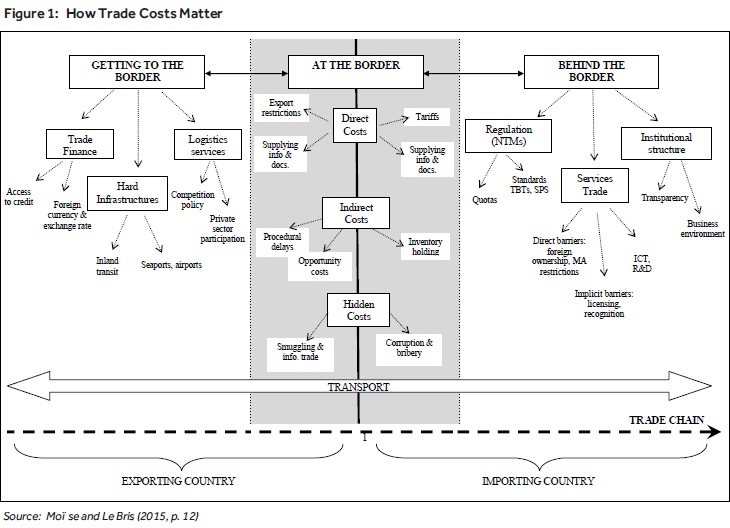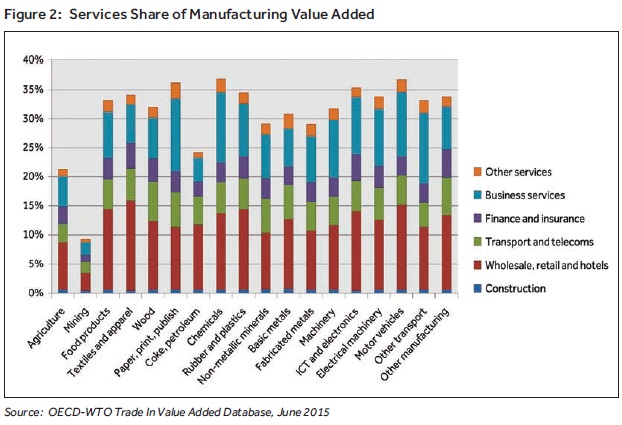News
Trade and the SDGs: Making ‘means of implementation’ a reality

The 2030 Agenda for Sustainable Development recognises that international trade is an important mechanism through which many of the specific goals and targets that have been agreed can be achieved. Making trade an effective means of implementation will require action on a broad front.
This issue of Commonwealth Trade Hot Topics demonstrates how a common denominator of such actions is to reduce the costs of trade. This is so as to permit firms in developing countries to source the inputs they need to be competitive and to give households better access to a range of products and services that will improve their welfare, ranging from food security to health. Many of the sustainable development goals involve services – finance, transport, medical, education, etc. Trade can help improve the availability and quality of services. Thus, efforts to reduce trade costs should include services sectors as well as trade in goods.
International trade and implementation of Sustainable Development Goals (SDGs)
The experience of countries that have successfully used trade to achieve and sustain high rates of economic growth over a long period illustrates the high potential pay-offs to pursuit of a trade-oriented development strategy that exploits international trade and investment opportunities. Trade and foreign direct investment (FDI) are mechanisms that allow firms to exploit economies of scale and specialise in the activities in which they have a competitive advantage and can be powerful sources of technology transfer and knowledge spillovers.
In today’s highly integrated world economy where value chains span many countries, the level of trade-related transactions and operating costs is a major determinant of the ability of the most efficient firms to expand their market share. High trade costs increase what firms have to pay for critical inputs of goods and services and decrease the returns they obtain from engaging in exports. Indeed, high trade costs may simply bar productive firms from trading at all, thus precluding them from leveraging the opportunities that are offered by world markets (Figure 1).

Trade costs are not just an issue for the exchange of goods. They also affect trade and investment in services. Regulatory barriers to services trade, such as restricting the ability of foreign providers to offer services through nationality requirements or banning inward foreign direct investment in segments of the transport or communications sectors will increase costs for all firms and make them less competitive. Services generally account for a significant share of the total costs of production of a firm. Actions to facilitate trade in services will increase competition on markets and give firms and households access to services at lower prices and increase the variety of services that are offered. This is not just a domestic policy agenda; equally important is that developing countries can access export markets, including through the temporary cross-border movement of services suppliers – mode 4 in WTO speak. The decision by World Trade Organization members to permit countries to grant preferential access to their services markets to least developed countries (LDCs) – the so-called services waiver – is a good first step forward in this regard.
More generally, attaining sustainable development objectives is to a significant extent a services agenda. Improving health and educational outcomes, reducing regional inequalities through better connectivity by bolstering transport and information and communication technology (ICT) networks and ending poverty all depend on investments in the associated sectors of activity – many of which are services: health, education, transport, telecommunications, etc. Trade and FDI can help improve the supply of, and access to, such services. While there has been much discussion on the need to improve productive capacity in developing countries, this is as important for services as it is for manufacturing. Indeed, the latter depends very importantly on the former (Figure 2).

The 2030 Agenda for Sustainable Development and the associated Sustainable Development Goals (SDGs) recognises the potential role of trade as a ‘means of implementation’ – an instrument that can be used to achieve the SDGs. It is a positive development that trade is more prominent as an instrument to achieve the SDGs than was the case with the Millennium Development Goals. The trade targets that are included in the SDGs and that are somewhat elaborated in the Addis Ababa Action Agenda, centre on improving market access for developing countries, concluding the WTO’s Doha Development Agenda negotiations and duty-free, quota-free (DFQF) market access for LDCs. These policy areas have long been on the agenda of international trade negotiations. Cooperation in these areas can contribute to sustainable development, but may not do much to address the main constraints that limit the scope for trade to make a positive difference.
A major factor that inhibits more effective use of the global trading system by firms in LDCs is high trade costs. Extensive evidence suggests that trade costs are much higher than prevailing tariff rates of protection. Even if account is taken of non-tariff measures (NTMs), foreign market access barriers in export markets are rarely the binding constraint on trade expansion. The post-1980 experience makes clear that autonomous reforms drive economic development. However, non-tariff barriers and services trade restrictions do not figure prominently in the SDGs and the 2030 agenda.
Bernard Hoekman is Professor at the European University Institute and Research Fellow at the Centre for Economic Policy Research (CEPR). The views expressed in this article are those of the author and do not necessarily represent those of the Commonwealth Secretariat.
Commonwealth Trade Hot Topics is a peer-reviewed publication which provides concise and informative analyses on trade and related issues, prepared both by Commonwealth Secretariat and international experts.




